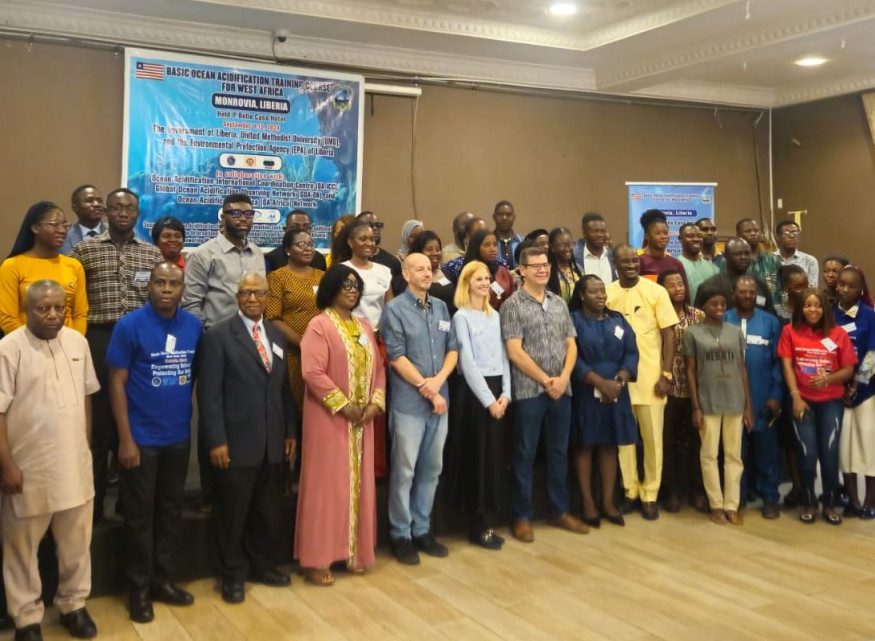The IAEA Ocean Acidification International Coordination Centre (OA-ICC) held a basic training course on ocean acidification in September 2024 in Monrovia. The course brought together 17 participants from 6 countries: Angola, Gambia, Ghana, Liberia, Nigeria, and Togo. The participants were early-career scientists, graduate students, technicians, managers and teachers, most of which were just beginning to work in the ocean acidification area. West Africa had been identified by the OA-ICC as a priority region for ocean acidification capacity development based on a survey circulated in 2021 within the OA-Africa network. The region is particularly vulnerable to ocean acidification due to communities' reliance on the ocean for food, income, and recreation.
The goal of this basic-level, theoretical, training course was to enhance participants’ expertise in conducting ocean acidification research, based on best practices, avoiding typical pitfalls. It also aimed to encourage networking and collaboration among scientists working on ocean acidification in West Africa and inform about opportunities for international collaboration and resources available for the OA community. Lectures included information on the basics of seawater carbonate chemistry, and hands-on exercises with software to calculate the carbonate system parameters. Several lectures were dedicated to the biological response of marine organisms to ocean acidification, and how biology can inform local monitoring efforts, as well as experimental design for OA laboratory experiments.
On the last day of the event, the Gulf of Guinea Ocean Acidification Network was officially launched, as part of the Global Ocean Acidification Observing Network (GOA-ON). The new network is a regional sub-hub to the GOA-ON OA-Africa network. A Call for Action for increased attention and concrete measures to mitigate and adapt to OA was released by the network. In addition, as several members of the Steering Committee of the OA-Africa network was in Monrovia, a meeting of the Committee was organized on 12 September, discussing options to help empower African Member States to address ocean acidification, where equipment and capacity to measure and study OA is still scarce.
The course was co-organized by the IAEA OA-ICC and the United Methodist University, with financial support from the International Alliance to Combat Ocean Acidification (OA Alliance).

